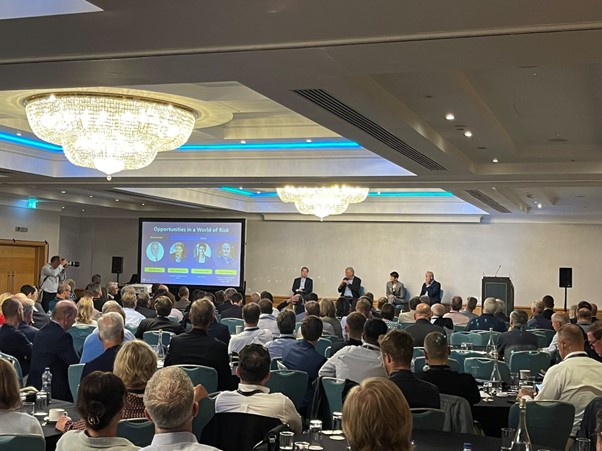The SIOR International European Conference has called for the creation of ‘a new asset class’, as part of a mission to deliver more sustainable food production and security.
Food is now recognised as a major cause of climate change, contributing as much as 25-30% of total GHG emissions. COVID has compounded the problem, highlighting weaknesses in food supply chains. Against a backdrop of growing populations, rising food prices, and the wheat shortage caused by the war in Ukraine (source of 30% of the world’s supply), delegates were warned that we are at crisis point.
These problems were highlighted by sustainability expert and author Mike Berners-Lee in his keynote address to the Conference. He challenged companies to think differently about how to solve the problems of climate change. Drawing on ideas and research from his book There is no Planet B, Mike said: “We need to look at climate change holistically, and tackle everything at once”.
How well are the real estate and construction industries responding to these challenges? Food manufacturing currently sits in the B1 Planning Use class of industrial and logistics, and yet has very specific needs in relation to resources and operations. These needs often make food company tenants undesirable to owners and landlords of general industrial and logistics parks.
There is wide-spread agreement within the food industry that we need greener agriculture, more efficient production, less waste and healthier eating. However, there is also growing awareness that our food systems and infrastructure are outdated and inefficient, and are not equipped to embrace the exciting new food technologies that are emerging.
Jackie Wild, CEO of TSL and SmartParc, spoke at the Conference on a panel discussing ‘Opportunities in a World of Risk’, and is proactively seeking to solve these problems in a variety of ways. She has launched a campaign to create a new real estate asset class for food manufacturing, which allows property investment to align specifically with the needs of the food industry.
She has also been instrumental in creating SmartParc, the UK’s first dedicated food business park with shared services. Working in partnership with SEGRO and CBRE, SmartParc brings this new asset class to life. It delivers the holistic solution, which Mike Berners-Lee proposed in his keynote speech, and was fully endorsed by the SIOR membership, as a way of taking positive action.
SmartParc SEGRO Derby is the first in a series of investments, across the UK and internationally, designed to ‘change food production for good’. It represents an entirely new asset class in the commercial property sector, bringing together world-class, purpose-built food production facilities and support services, all on one site.
It offers a range of buildings of different sizes and specifications (3,500-400,000 sq ft) as well as access to shared non-competitive services, including green energy, water, effluent, and other utilities. This sharing model helps to reduce operating costs (savings of up to 20%), and to deliver business optimisation through design (further savings of up to 30%).
Jackie said: “We can’t tackle climate change, if we don’t tackle food production. We must reinvent and redefine property rules, so money can easily be directed to where it is needed. This means creating a dedicated asset class, catering specifically to the needs of food producers. It also means re-educating the market about why food production is a valuable and attractive investment and development opportunity.
“SmartParc is a great example of turning this ambition into action. It provides a fresh opportunity for forward-thinking food businesses, to grow in a more sustainable and collaborative way. It also offers cities and regions the chance to regenerate their economies and boost local communities by creating new jobs. For SEGRO, it is an attractive commercial investment, which will deliver great returns.”
The first phase of SmartParc SEGRO Derby is underway, with anchor tenant Hello Fresh already up and running. Completion of the park is due in 2024.
ENDS
